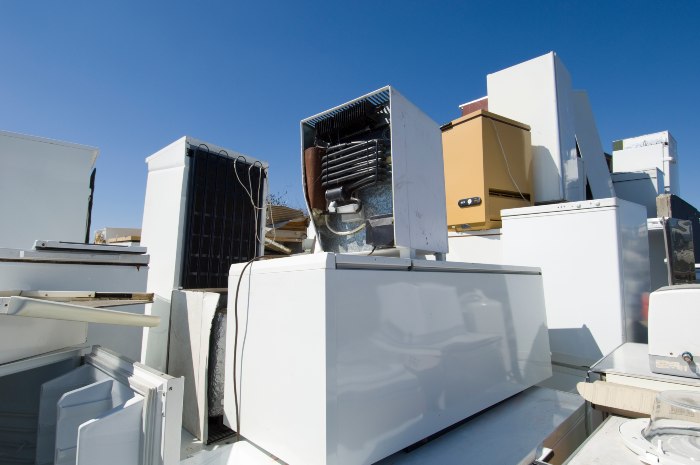Businesses frequently upgrade their appliances and equipment to improve efficiency and meet industry standards. However, disposing of old appliances requires careful planning to ensure responsible waste management. Improper disposal can lead to environmental harm, legal issues, and unnecessary costs. Businesses must adopt sustainable and compliant disposal practices to minimize their impact and make the most of their outdated equipment.
Understanding the Importance of Responsible Disposal
Many business appliances contain materials that can be harmful if not disposed of properly. Refrigerators, air conditioning units, and commercial kitchen equipment may contain refrigerants and other hazardous substances. Electronic devices often have heavy metals that can contaminate soil and water. Disposing of these items responsibly prevents environmental damage and ensures compliance with local regulations.
Businesses also have an opportunity to contribute to sustainability efforts. Many appliances can be refurbished, recycled, or donated instead of being discarded. By considering eco-friendly disposal options, companies can reduce waste, lower their carbon footprint, and enhance their corporate social responsibility initiatives.
Assessing the Condition of Old Equipment
Before deciding on a disposal method, businesses should evaluate the condition of their old appliances. Some equipment may still be functional and could be repurposed or donated to organizations in need. Others may require minor repairs to be resold or used as backup units. Identifying whether an appliance has any remaining value can help determine the best course of action.
If an appliance is beyond repair, recycling is often the next best option. Many components, such as metal parts, wiring, and plastic casings, can be processed and reused. Businesses should research local recycling programs and find facilities that accept commercial appliances. Some manufacturers even offer take-back programs, allowing companies to return old equipment for proper recycling.
Compliance with Legal and Environmental Regulations
Disposing of commercial appliances involves legal considerations. Many regions have strict guidelines on how certain equipment should be handled, particularly if they contain hazardous materials. Businesses must familiarize themselves with relevant laws and ensure their disposal methods meet regulatory requirements.
Working with licensed waste disposal companies is often the safest approach. These professionals understand legal and environmental guidelines and can properly dismantle, transport, and recycle appliances. Choosing reputable disposal services helps businesses avoid fines and ensures that appliances do not end up in landfills or illegal dumping sites.

Exploring Donation and Resale Options
If an appliance is still in working condition, donating or selling it can be a responsible and beneficial option. Many nonprofit organizations, schools, and community centers accept used commercial equipment. Donating appliances not only extends their lifespan but also supports organizations that may not have the budget for new equipment.
Resale is another viable option, particularly for high-value appliances. Many businesses look for cost-effective equipment solutions, and used commercial appliances can be in high demand. Selling to second-hand stores, online marketplaces, or specialized resellers can help businesses recover some of their investment while promoting reuse.
Partnering with Professional Disposal Services
For businesses handling large volumes of old equipment, partnering with professional disposal services simplifies the process. These companies specialize in the collection, transportation, and recycling of appliances. They ensure proper dismantling of hazardous components and direct usable materials to recycling facilities.
Many disposal services offer certification, providing businesses with proof that their appliances were handled in an environmentally responsible manner. This documentation can be valuable for businesses committed to sustainability and compliance.
Investing in Sustainable Equipment Choices
One way to reduce disposal challenges in the future is to invest in energy-efficient and long-lasting appliances. Choosing equipment that meets modern efficiency standards not only lowers energy consumption but also reduces the frequency of replacements. Businesses should consider products with manufacturer take-back programs or those designed with recyclable materials.
Sustainable procurement strategies help businesses make environmentally responsible choices from the outset. By prioritizing durability and recyclability, companies can minimize waste and contribute to a circular economy where materials are continuously repurposed.
